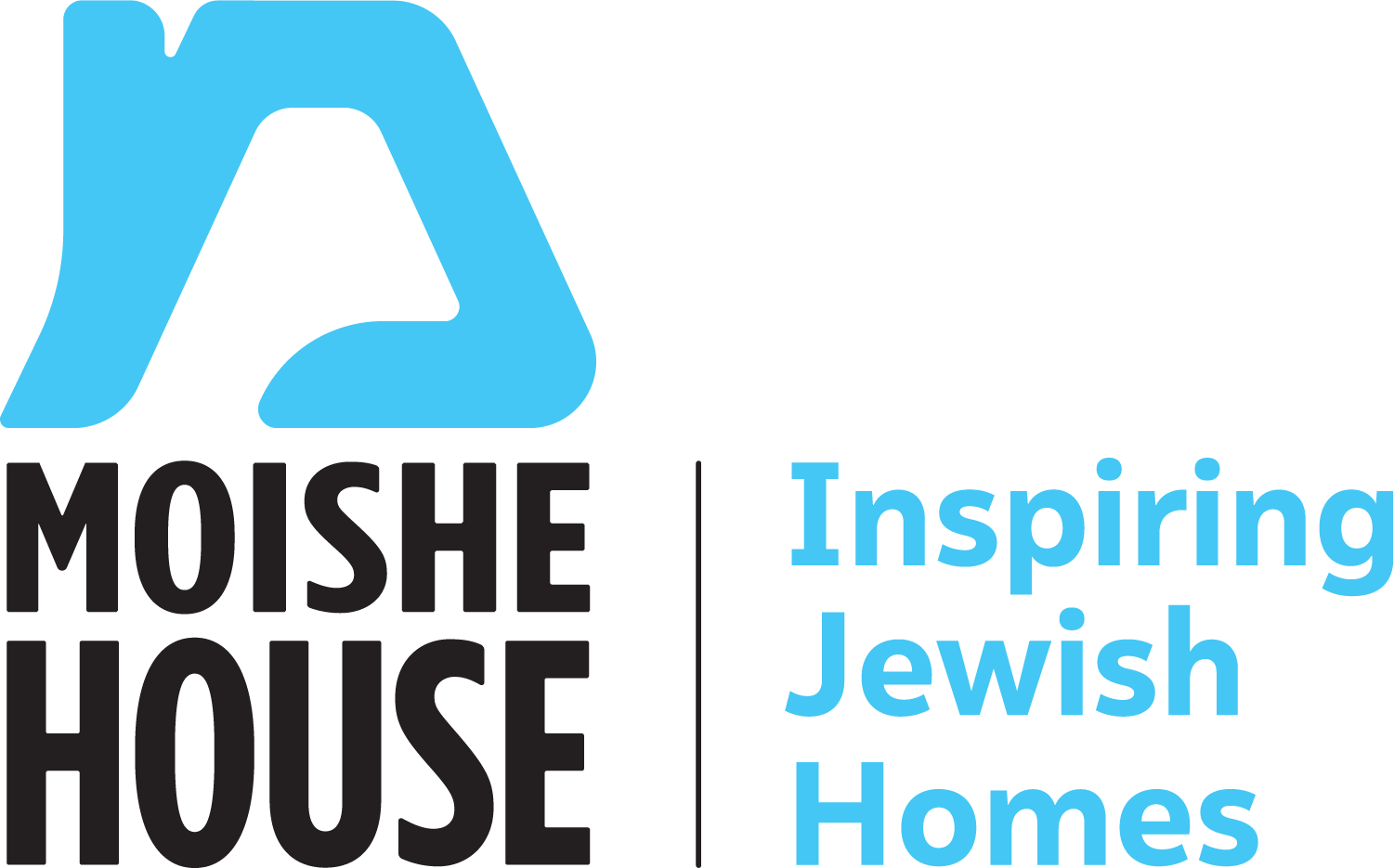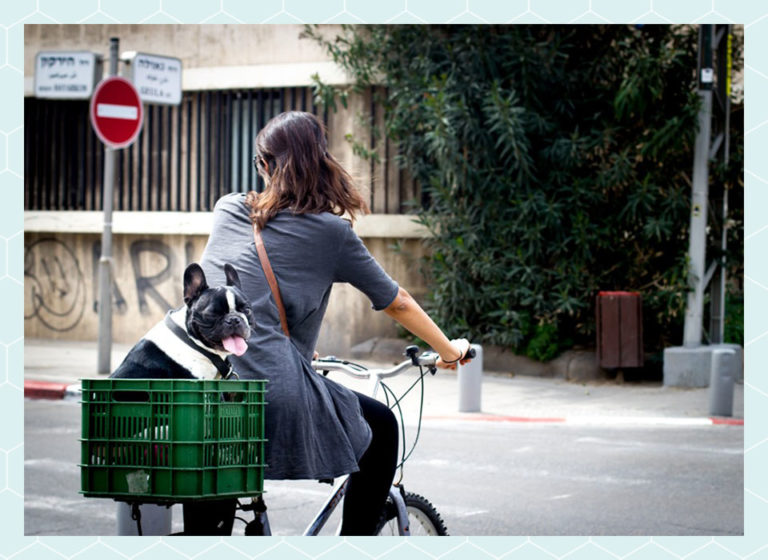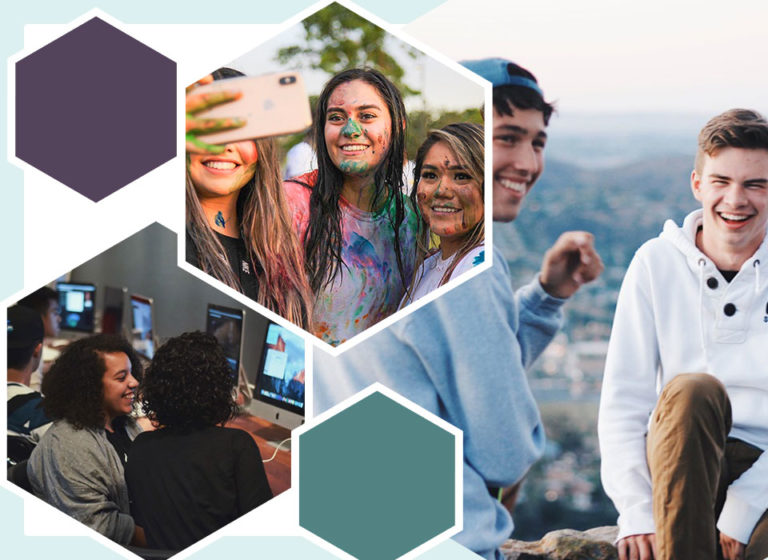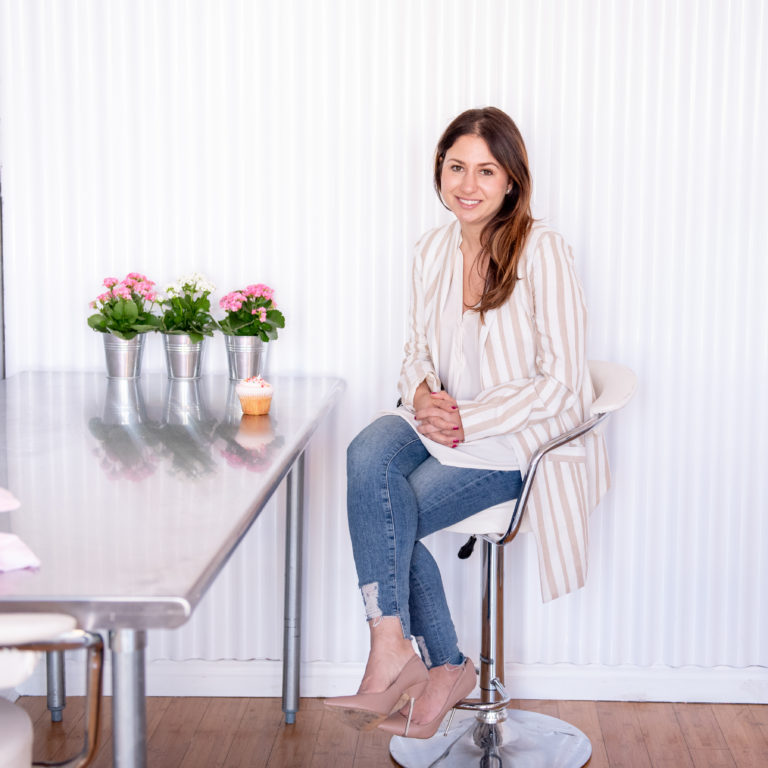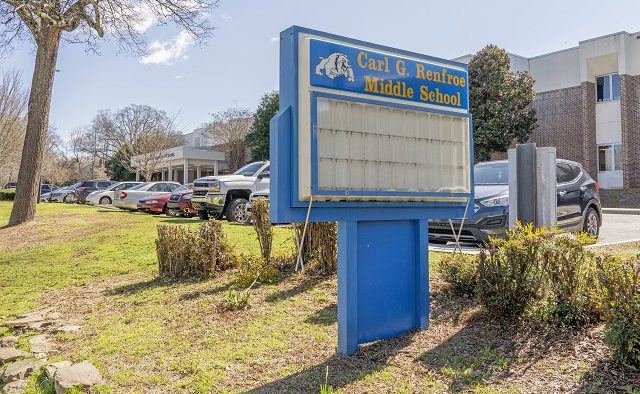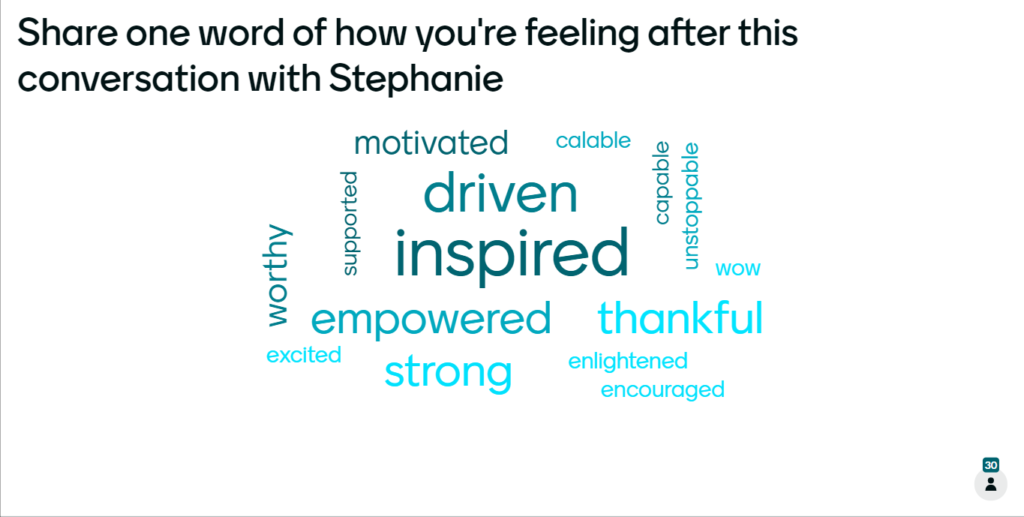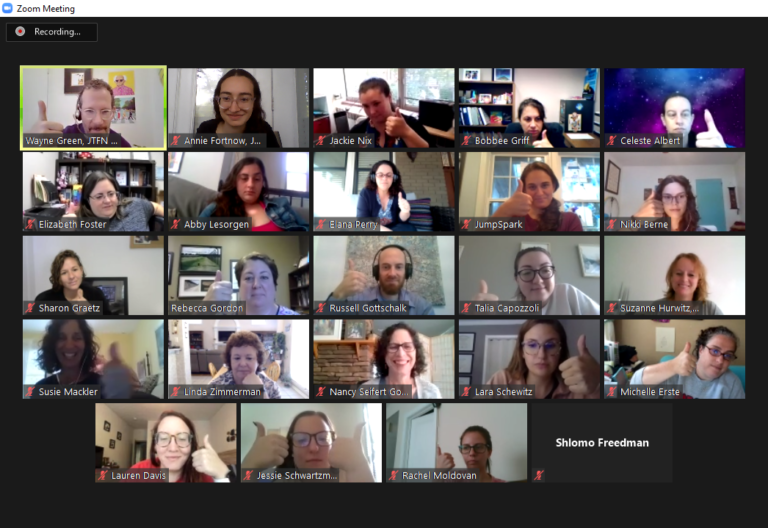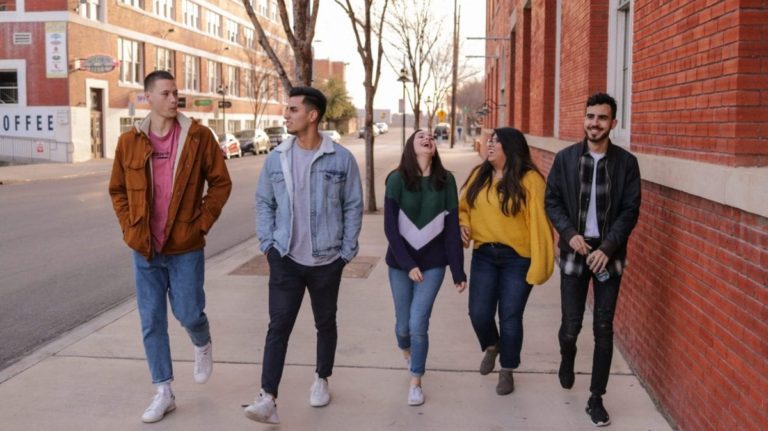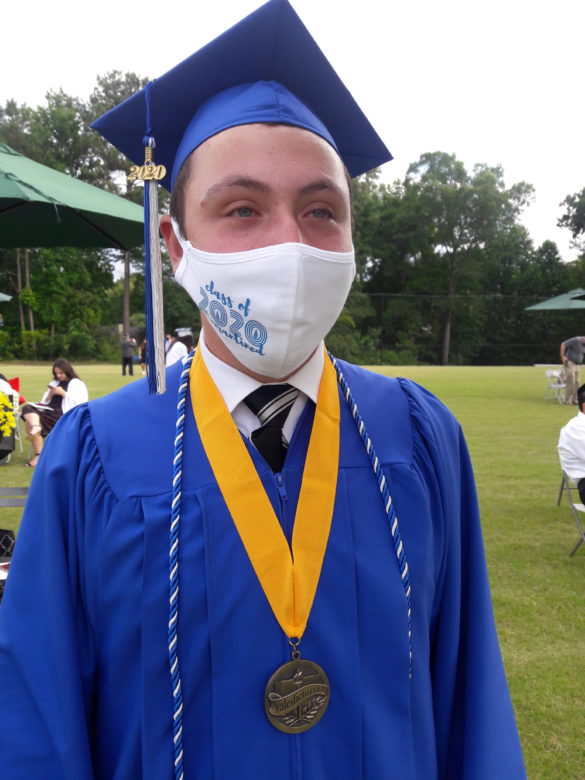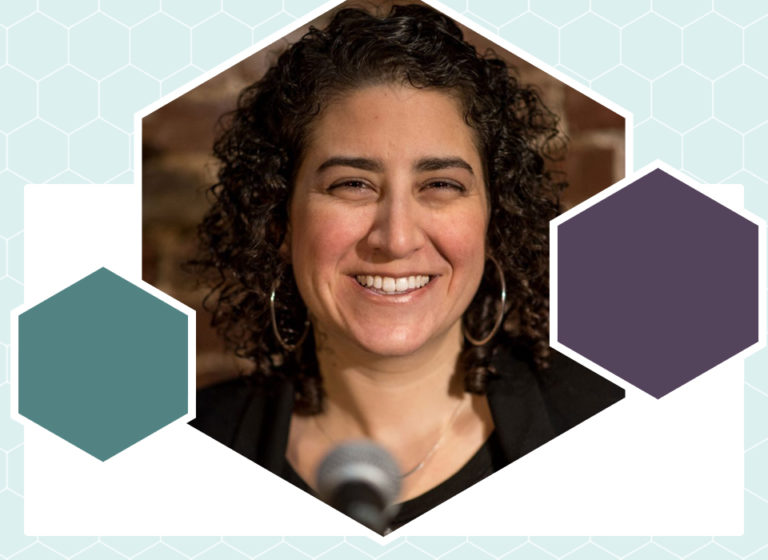
Caroline Rothstein, an internationally touring writer, spoken word poet and performer, spoke to a group of Atlanta teens about your own personal gods, Judaism in today, self-love, anti-semitism, and reincarnation, inspiring us to take her words into our lives and realize a greater truth in the world we face as young and Jewish women.
Rothstein has performed poetry, recited speeches, and led workshops at colleges, schools, community organizations, and other performance spaces. She was able to present to us in an interactive, non-toxic, yet inspiring space — even on Zoom.
Last fall, we had an amazing opportunity to get to know Rothstein prior to the JumpSpark Strong Women Fellowship full-group meeting. We learned how to effectively interact in a safe space on topics she planned to bring to the Jewish teens across Atlanta who come together (now virtually) to empower, learn from, and educate each other so we could take her experiences to benefit our own.
As soon as the famous “ding-dong” went off in the Zoom call, we were immediately struck by Caroline’s energy and presence. Despite being virtual, her contagious smile translated extremely well and lit up the (virtual) workspace. She immediately made us feel welcome and relieved for the discussion. She asked how everyone was doing on the call, and it felt so natural to speak with her.
Quite frankly, prior to the call, we figured we would probably talk about whatever the speaker-of-the-month wanted to talk about, having the common somewhat-awkward Zoom call atmosphere. But Caroline was different. Instead of having an already prepared and rigid event, we were able to discuss with her what we thought the event should be about. We kicked off our discussion by talking broadly about matters we think are vital to discuss today, with ideas like body image and racial injustices.
Caroline did not just hear, but listened to the actual words we were saying. It felt extremely personable that we were able to guide and facilitate the focus of the event, while understanding that with the constantly changing world, the subject matter could change.
Around two days prior to the large-group meeting, Caroline sent us an email, pretty much checking in, asking if we thought the topic we had decided on was still applicable and was tailored appropriately for the culture of the world. Caroline teaches us how to observe the world around us and illustrate the idea of recognition of our surroundings. The flexibility Caroline taught and encouraged helped this group of teens to understand how omnipresent issues in the world are ever changing.
During the full group event, Caroline shared her poems and performed spoken word. She was able to convey a message and strong feelings through each poem. We could see how strong she is, as she was able to be so vulnerable through her poetry.
We also did a couple writing exercises. We loved the letter we wrote to ourselves. Miriam wrote about how sometimes in her busy life she needs to take a moment to think and have a peaceful moment.
“Dear Miriam of the past, Life may be hectic so it’s alright to take a bit more time for yourself sometimes. Stay in your bed longer if you want or do a 15 step skincare routine.”
Overall, Caroline was an amazing speaker, and we’d love to hear more of her poems in the future. She left us with the feeling that it is OK to be every single part of ourselves, no matter the circumstances or how different you are. Because of Caroline, in the future, we feel that we will be able to do what we want in our professional and personal lives.
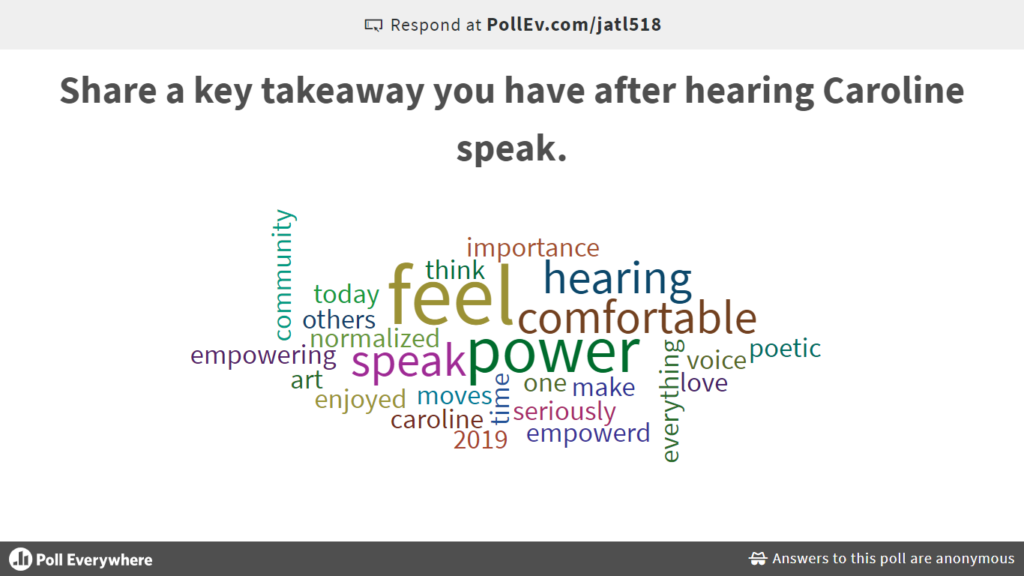
Miriam Raggs is a 10th grader at The Weber School and Noa Young is a 10th grader at North Springs High School. Both are second-year Fellows and Peer Leaders for the JumpSpark Strong Women Fellowship.
Read the original article published in VoxAtl here.
